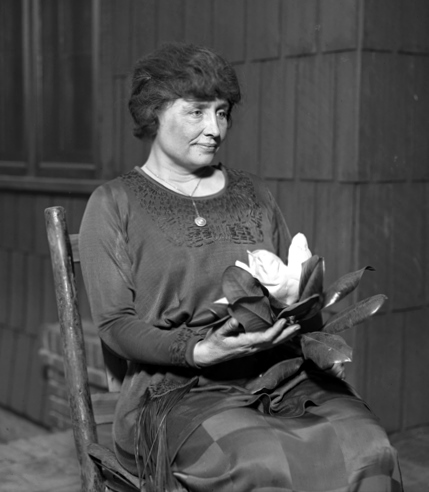Authors:
Historic Era:
Historic Theme:
Subject:
April 1973 | Volume 24, Issue 3


Authors:
Historic Era:
Historic Theme:
Subject:
April 1973 | Volume 24, Issue 3
Before, during, and after the work that made him famous—his invention of the telephone—Alexander Graham Bell was deeply involved in teaching the deaf. It was his first work, and when he was seventy, he wrote that “recognition of my work for and interest in the education of the deaf has always been more pleasing to me than even recognition of my work with the telephone.” The impetus for this interest was extremely intimate: both his mother and his wife were deaf. In a new biography, Bell: Alexander Graham Bell and the Conquest of Solitude, the historian Robert V. Brace describes the life, work and compassionate nature of this extraordinary man. The biography will be published later this month by Little, Brown and Company, and AMERICAN HERITAGE is pleased to publish a section of the book. Our excerpt starts when Bell, at the age of forty, met a small child —a girl whose face showed “an indefinable, chilling emptiness.”

Hellen Keller (circa 1920)
Among the deaf were those people who, like Mabel Bell, Alexander Graham Bell’s wife, insisted that they would rather live sightless but warmed by voices in the dark than encased in the cold, bright solitude of deafness. Among them also were those for whom even the solitude was dark. They were the deaf-blind.
Bell knew the deaf-blind, too. In February, 1876, he had attended a memorial service to the late Samuel Gridley Howe, the educator and reformer who had done pioneer work with the blind. Howe had been head of the Perkins Institution for the Blind in Boston, and his most famous pupil there had been a deaf-blind student named Laura Bridgman. At the age of two Laura had lost her sight, hearing, even most of her sense of smell and of taste. Little remained to make her living body more than the sealed tomb of her mind. But Howe had touched that mind and found it responsive. And so Laura had discovered the existence of the world and had learned something of what it held. At the service for Howe, Bell had “quite a little talk” with Laura—by means of finger spelling—and as Bell wrote at the time, Laura had cried for her dead teacher. “The whole scene was one I shall long remember,” Bell wrote.
Years later, in 1887, Captain Arthur H. Keller, a former Confederate officer who had become a newspaper editor in Tuscumbia, Alabama, brought his six-year-old deaf-blind daughter Helen to Bell in Washington. Helen was a healthy child, excited to something like happiness by what she sensed of the novel journey. Bell may have seen irony in the contrast between her eager gropings and her father’s sadness. Yet in her well-shaped face, for all its intimations of dormant intelligence, there seemed to be an indefinable, chilling emptiness. Bell listened to the story of the illness that had left Helen completely deaf and sightless at nineteen months. Something in